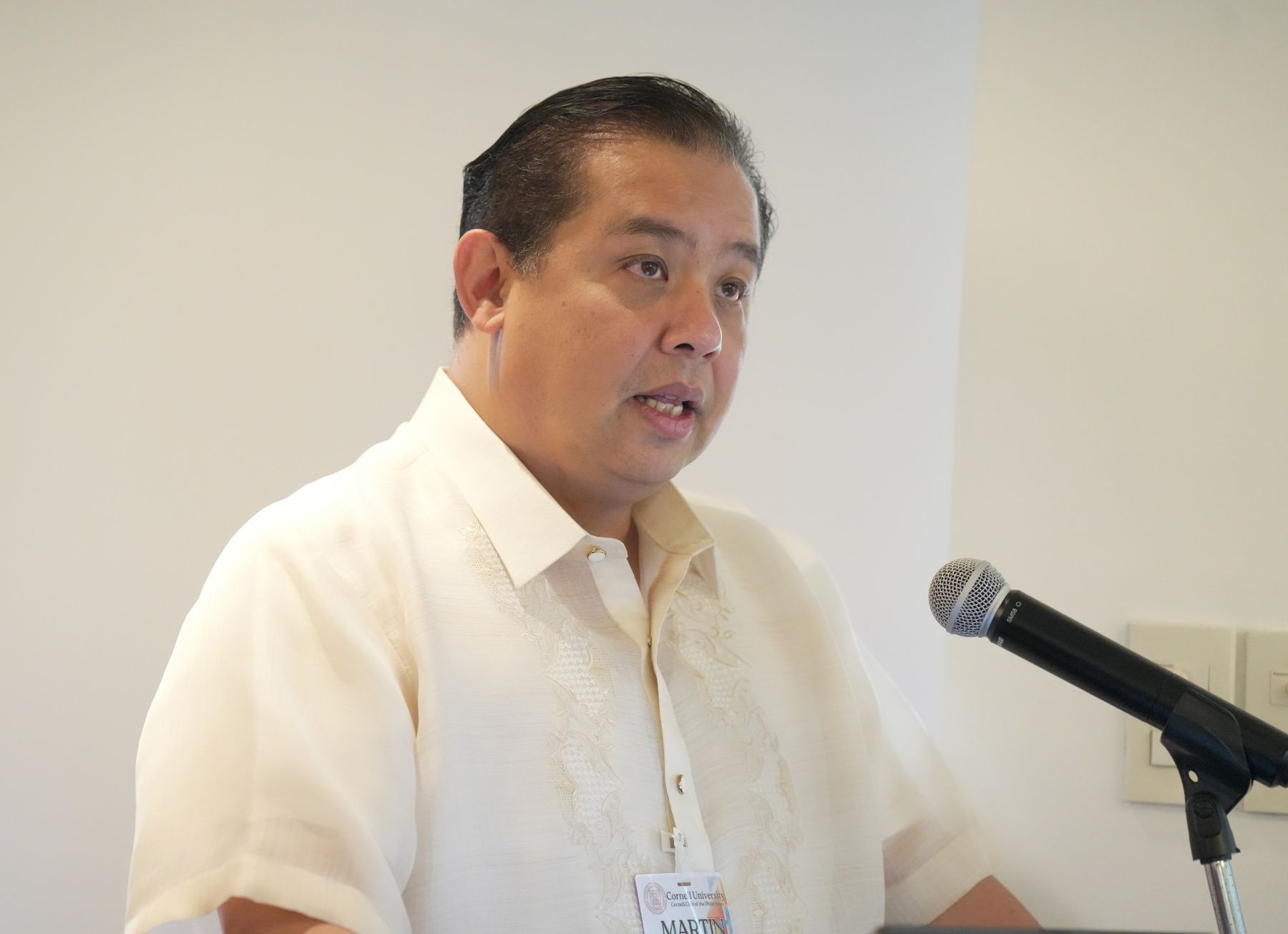EBET law to keep number of jobless Pinoys down, says Romualdez
At A Glance
- House Speaker Martin Romualdez said the newly-signed Enterprise-based Education and Training (EBET) Law will help keep the number of unemployed Filipinos down through various training and up-skilling programs.

House Speaker Martin Romualdez (Speaker’s office)
House Speaker Martin Romualdez said the newly-signed Enterprise-based Education and Training (EBET) Law will help keep the number of unemployed Filipinos down through various training and up-skilling programs.
“As I have always declared, as in inflation, the continuing challenge for us is to ensure that joblessness remains at the lowest level possible. The EBET Law will help us accomplish this task,” Romualdez said in a statement.
On Thursday morning, Nov. 7, the Speaker led other House members in witnessing President Marcos sign Republic Act (RA) No. 12063 at a ceremonial event in Malacañang Palace.
Romualdez points out that the EBET law is up-to-date to the country’s unemployment rate in September, which is now at 3.7 percent.
This is a decrease from the four percent in August and 4.5 percent in September 2023, based on a report of the Philippine Statistics Authority (PSA).
The House leader noted that the law would help resolve labor-related issues such as job-skills mismatch and lack of competencies among workers.
“We are hopeful that the law could effectively address these issues so we can prepare our workers for the demands of the local and foreign market, and assist them in finding new or additional employment so they can help their families,” he stressed.
Under the law, workers who are either new entrants to the labor force or employed workers who opt to undergo training are eligible to participate in the EBET program to acquire new skills, upgrade skills, and obtain entrepreneurial know-how.
An EBET applicant must also possess the appropriate aptitude and capacity to understand and follow oral and written instructions and submit a recent fit-to-work certificate, among other qualifications.
Enterprises may also set appropriate educational requirements for a trainee to qualify for a certain EBET program, as well as prescribe qualifications for their workers who apply for up-skilling for job promotion.
The law sets that the training hours shall be determined by the enterprise, which shall not exceed eight hours per day. For overtime—which shall not exceed two hours a day—trainees shall be paid an additional 25 percent of the hourly allowance rate for every hour.
It also requires that a trainee under an EBET program shall receive a training allowance. Accordingly, this shall be enough to cover transportation costs, meals, and any other expenses.
For financial assistance, trainees may avail themselves of the Tulong Trabaho Fund under RA No. 11230, or the Tulong Trabaho Law.
Furthermore, the EBET law mandates that program graduates shall be given preference in the hiring of workers by the enterprise that implemented the EBET program and shall be exempt from probationary employment.